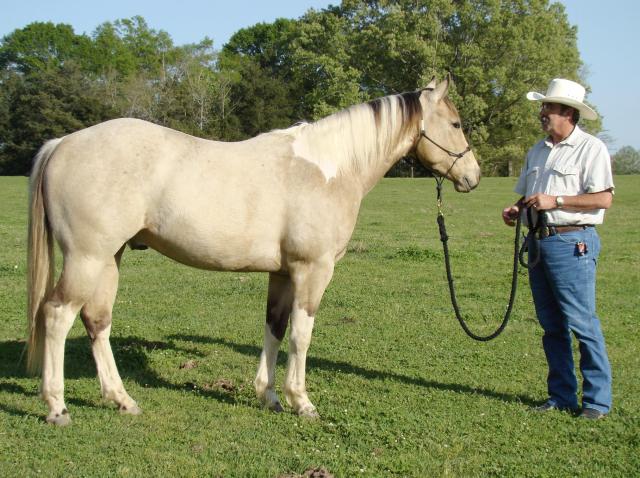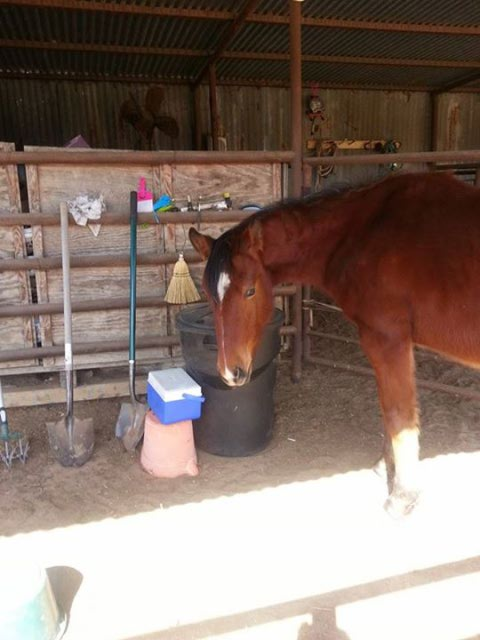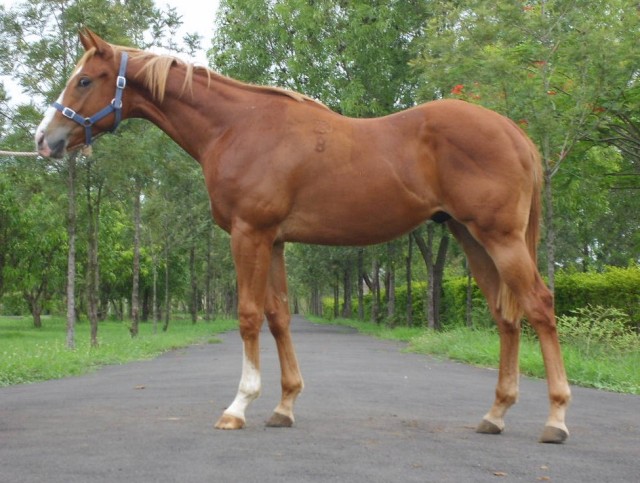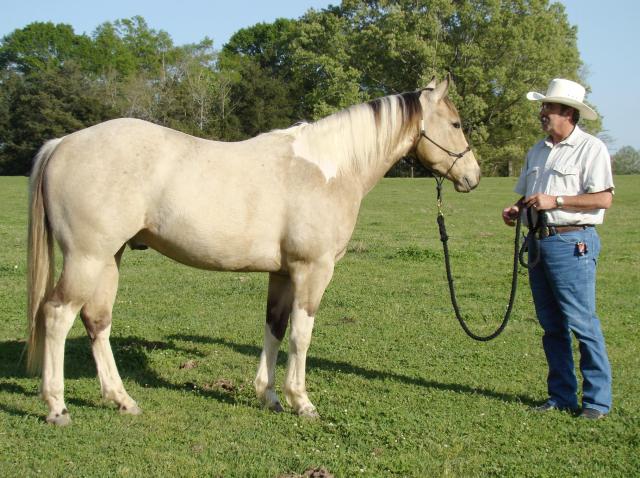QuestionI have a 6 year old gelding who I have had for about 9 months. He gets worked with 3-7 times a week and is kept in a stall alone. He has done a complete 180 from when we got him. But for the past 3 days, everytime I ask him to trot or canter, he starts throwing his head, swishing his tail and then turns his head around to bite my foot. When he does this, I turn his head the opposite way and tap him with the crop on the shoulder that he turns his head to bite me. ( I have also tried to gently tap him on the nose with the tip of my boot but when i did that he became more determined to bite me lol.) After doing this consistently and rewarding him when he willingly did what was asked, he got the picture and stopped. But today, he starting doing it again. I don't want to fight him every time I ask him to go and I don't want this to turn into a bad habit. This is a completely sound horse. So my question is, do you have any advice or a different technique that may work to break this growing habit?
Thank you
AnswerRick Gore: Horses act out when they question their leader. Horses need direction and not correction.
Hi Tori, this is not a huge problem and you are smart not to let it continue. There are a few things that I did not like to hear. In a stall (cell) is very tough on a horse, it is even tougher if the horse only gets out to work and be ridden. Horses are like us and need time to relax, be with friends, and not be worked or stressed. More turn out time, more time spent bonding and not always riding or working will help. The other thing I heard is you tapped him with a crop. A crop is a pain and intimidation device, much like spurs and big bits. Not a fan and I assure you, your horse does not like it either.
Now back to your word tap. A tap is an annoyance to a horse. It normally does not fix anything and just bugs and irritates the horse. It is like some people play, tug, and are constantly moving the reins and always trying to worry about the horse's head position. They end up making the horse hate or dislike the bit and reins and then end up ignoring all cues from the reins. Tapping a horse will only make the horse dislike the crop. It would be better that you only use if you have to and when you use it, make it count. You have to be consistent so the horse can learn what to expect. You should ask a horse three times, please, pretty please, and you should have. Some ask four times and add "you better" before you should have.
So if I ask a horse to trot, I say trot and lightly squeeze my legs (that is please). Then I say trot more forceful, squeeze harder and move my body forward (that is pretty please). Then I squeeze, say trot and whack him with the reins (that was you should have). This all happens within a few seconds. I do this with everything I do. My horses know what is coming and make a choice to do it the first or second time so I don't get to the third. Now if I were to do this once in a while, and sometime tap 3 or 4 times and sometime whack them hard on the first time, they would always be confused and never know what to expect. Horses have to have consistency and routine. In order to feel comfortable, they have to know what to expect.
Biting and kicking are unacceptable so they do not get any warnings. They get whacked hard and fast. Now with that said, my 3 yr old still will reach back and nibble on the stirrup once in a while. He is not biting me and it is not done to get out of work, he just does it when he is bored. I don't sweat it and don't make a big deal out of it. Lots of problems are make bigger by people giving them attention.
When working with horses if people stayed more focused on what they want the horse to do and don't worry so much about what the horse is doing, stay on track and concentrate on what you want him to do. So in your case, the head tossing and biting is a way of not cantering.
Not cantering is a symptom of a bigger issue. The horse is not respecting you as a clear leader. He is questioning your authority and I would not be surprised if he was doing it in other areas, maybe not backing, not taking the bit, not standing, not leading well, pinning ears at you, pushing you when you are on the ground. Any or all of these would be his way of saying, you are not a strong leader and I may have to take over.
Not sure how you get this horse to canter, but you should be very clear. If you lunge or round pen this guy, he should know when you say canter that he runs or he gets immediate pressure. If you work on your ground work before mounting this guy, your problem will go away. You have to really establish your position as leader on the ground. You do that by moving the horse, lunge him, change directions, stop him, back him, send him, have him come to you with head down. You need to be able to do this calmly and without a lot of force. You give up about 50% of your control when you get in the saddle, that is why it is so important to have great control on the ground before you get in the saddle.
Work this horse horse on the ground at least as much as you ride and maybe 2/3 on the ground and 1/3 in the saddle. This would ensure your leadership position. Which, in my opinion is lacking right now. A lower horse will not challenge the leader of the herd. He may try to move up and challenge a slightly stronger horse, but not the clearly defined leader. Your horse is challenging you and is getting away with it. Even thou you are Tapping him :), he is getting away with it or he would not keep doing it.
Do good ground work, ride him and when you ask for canter, if he does anything but canter, use your crop like he just kicked you and give the canter cue again. If you time this right he will not have time to bite or head throw and you will be cantering. Ground work is really important. There is an old horse saying, "The more times you get thrown, the better your ground works gets" The moral of this is if your ground control is good, you horse will not try and throw you.
Hope this helps,
Rick

 My horse has a bad habbit.
QuestionI bought a Walking horse about 2 weeks ago, he
My horse has a bad habbit.
QuestionI bought a Walking horse about 2 weeks ago, he
 Sudden aggresivness in a male yearling
Question
Joseph
Please help me. We bought this m
Sudden aggresivness in a male yearling
Question
Joseph
Please help me. We bought this m
 deep ribcage
Question
deep ribcage
hello maam, does this hors
deep ribcage
Question
deep ribcage
hello maam, does this hors
 trotting my horse on road
Question
road
hello. i am rohit from india. i ha
trotting my horse on road
Question
road
hello. i am rohit from india. i ha
 Bit problem
QuestionI have an 8 year old quarter horse mare.
Bit problem
QuestionI have an 8 year old quarter horse mare.